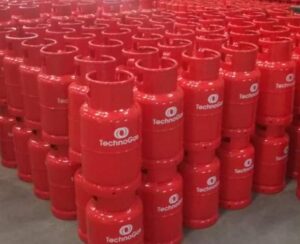IPMAN: Petrol Price Cuts Driving Down Cooking Gas Costs in Nigeria
By IDNN Business Desk | April 29, 2025
ABUJA, NIGERIA — The Independent Petroleum Marketers Association of Nigeria (IPMAN) has linked the recent drop in cooking gas prices nationwide to the decline in Premium Motor Spirit (PMS), commonly known as petrol.
A market survey revealed that the cost of refilling a 12.5kg cylinder of Liquefied Petroleum Gas (LPG) has fallen from ₦17,500 to ₦16,250 at select retail outlets in Abuja, while prices in Lagos have dropped from ₦17,283.58 to ₦13,750 according to the National Bureau of Statistics (NBS).
At retail gas stations across Abuja, the cost of 1kg of LPG now ranges between ₦1,050 and ₦1,150, down from previous rates of ₦1,200–₦1,400.
Why Cooking Gas Prices Are Falling

Commenting on the trend, IPMAN spokesperson Chinedu Ukadike explained that the LPG market is responding to shifts in energy consumption dynamics caused by cheaper petrol.
“When petrol prices were high, LPG became an alternative for generators. Now that petrol prices are dropping, LPG marketers and producers have adjusted their prices,” Ukadike said.
“That is the beauty of deregulation. Consumer behaviours shift based on petroleum product pricing.”
He hinted that further LPG price reductions may occur depending on both international market conditions and domestic exchange rates.
Consumption and Supply Trends
According to the Nigerian Midstream and Downstream Petroleum Regulatory Authority (NMDPRA):
-
Nigeria’s annual LPG consumption stands at 1.4 million metric tonnes.
-
Domestic production accounts for 600,000 tonnes.
-
The balance of 800,000 tonnes is imported.
At the new average rate of ₦1,300 per kilogram, national consumer spending on LPG is projected to hit ₦1.82 trillion in 2025, a decrease from ₦1.96 trillion previously estimated.
Petrol Price Slump Driving Market Reactions
The drop in petrol prices — now between ₦910 and ₦950 per litre, down from ₦940–₦970 — has triggered corresponding adjustments across related energy markets.
Attributing the shift partially to Dangote Refinery’s increased output and NNPC retail pricing strategies, experts believe that deregulation is finally beginning to reflect in broader consumer energy costs.
Outlook
Industry players anticipate that as Nigeria’s deregulated downstream sector stabilizes, competition among energy suppliers will push costs even lower, benefiting households across the country.
